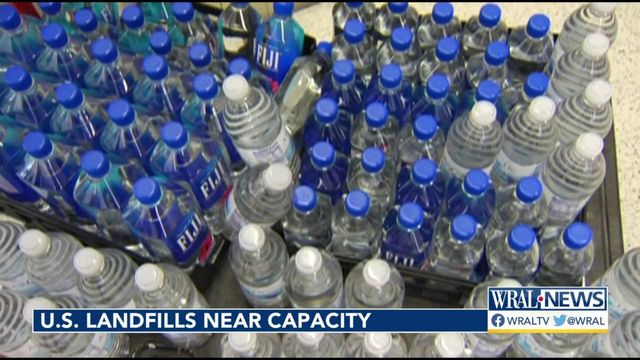North Carolina, other states aiming to stop plastic pollution at the source
America has a trash problem, with the 2,000 active landfills across the country filling up faster than expected.
Locally, the South Wake Landfill expected to reach capacity between 2040 and 2042.
According to the U.S. Environmental Protection Agency, the country creates 300 million tons of waste each year. It equates to about 5 pounds of waste every American throws away each day.
Now, a growing number of states are hoping to combat the waste crisis by limiting production of plastics and other waste created before it gets to the waste stream.
"I think most experts think that relying on consumers to solve this problem just isn't realistic," said Stateline Editor Scott Greenberger with The Pew Charitable Trusts.
Extended producer responsibility laws are gaining momentum, with four states passing bills in the past year, putting more of the responsibility on producers to curb the trash problem. Plastics are of particular concern as only about 5% of plastic waste in the U.S. is recycled.
"What that looks like, in practice, is that they will charge fees to producers based on the amount of plastic packaging they're using, for example, and that money will then be used to help waste management companies and municipalities on the back end to deal with the trash," Greenberger said.
North Carolina considered a similar bill last year, but it didn't get very far. State Rep. Deb Butler, D-New Hanover, sponsored the bill. She said she plans to refile it this session.
The city of Durham is currently considering a plastic bag fee to curb plastic waste.
Orange County is in the process of gathering citizen feedback for a plan to achieve zero waste by 2045.
“The reduction of solid waste to nothing or as close to nothing as possible by minimizing excess consumption by means of responsible production consumption and reuse and maximizing the recovery of solid waste," said Hollie Adams, a consultant who led one of the Orange County public meetings.
The last public meeting will be held at 7 p.m. Monday at Carrboro Town Hall or virtually:
- www.orangecountync.gov/ZeroWasteMeeting
- Meeting ID: 832 4692 4787
- Passcode: 364674
- Dial-in Option: (312) 626-6799
Orange County residents can give feedback in an online survey through Dec. 7 at http://www.orangecountync.gov/ZeroWaste.











